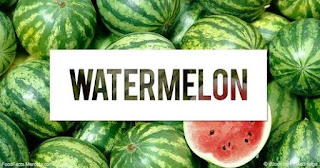Habits that can damage your kidney
1) Abusing painkillers: Nonsteroidal anti-inflammatory drugs may alleviate your aches and pains, but they can harm the kidneys.
They are safe in moderation, but regular overuse can result in kidney damage and total kidney failure.
2) Too much salt: Regularly eating too much salt can cause huge damage to your kidneys as well as other health problems. The kidneys metabolize 95 percent of the sodium consumed through food.
When salt intake is high, the kidneys need to work harder to excrete the excess salt. This in turn can lead to decreased kidney functioning, causing water retention in the body. Water retention can cause a hike in blood pressure and increase the risk of developing kidney disease.
3) Eating too much meat: The Kidney Foundation explains that protein derived from meat creates a lot of acid in the blood which can cause acidosis, a condition in which your kidneys can’t get rid of the acid fast enough. Protein is important for a healthy diet but must be balanced out with plenty of fresh fruit and vegetables.
4) Not drinking enough water: The main function of the kidneys is to flush out metabolic waste from the body and regulate erythrocyte production.
When the body lacks sufficient water, this hampers the kidneys’ ability to eliminate toxins from the body.
When you’re dehydrated your blood becomes more concentrated, and less flows through your kidneys.
5) Too much alcohol: The toxins found in alcohol not only damage the liver, but also your kidneys.
If your kidneys are healthy then it’s okay to drink in moderation but drinking more than four a day has been shown to double your risk of kidney disease.
6) Smoking: Smoking worsens blood pressure and Type 2 Diabetes (the two major causes of kidney disease), and slows blood flow to the kidneys.
People who smoke are more likely to have protein in the urine – a sign of kidney damage.
7) Sitting Still: Sitting for long periods of time has now been linked to the development of kidney disease.
It is known that greater physical activity is associated with improved blood pressure and glucose metabolism, both important factors in kidney health.
It is known that greater physical activity is associated with improved blood pressure and glucose metabolism, both important factors in kidney health.
8). Eating Too Many Foods High in Sugar: Sugar contributes to obesity which increases your risk of developing high blood pressure and diabetes, two of the leading causes of kidney disease.
Sugar is often added to foods and drinks that you may not consider “sweet.” Avoid condiments, breakfast cereals, and white bread which are all sneaky sources of processed sugar.
Sugar is often added to foods and drinks that you may not consider “sweet.” Avoid condiments, breakfast cereals, and white bread which are all sneaky sources of processed sugar.
9) Missing Out on Sleep: Sleep is vital for any person. It is during this time your body heals and renews itself, including kidney tissues. If you aren’t sleeping enough or the quality of your sleep is bad, it could block your arteries. This raises your blood pressure. Anything that raises your blood pressure can damage your kidney. So, get a good 7-8 hours of sleep every day.
10) Not Treating Infections Quickly: One study found out untreated viral infections could harm your kidneys.
The next time you get the flu, make sure to treat it and take the complete course of antibiotics.
Also, not taking rest if you have the flu, cold, tonsillitis, or pharyngitis could impact your kidney function.
11) Not Monitoring Your Blood Pressure: It is important to keep track of your blood pressure since hypertension is a leading cause of kidney damage. Keep to the recommended levels set by your doctor and take measures to control any high blood pressure. The level is usually set at under 140/90 mm Hg.
These eleven habits are unfortunately common in the modern lifestyle, but it’s vital that we look after our kidneys. And it’s not hard to do: keep fit and active, drink plenty of water, maintain a balanced diet, cut down on the cigarettes and alcohol, and only take over-the-counter medications when really necessary. The most important thing is that we be aware of the consequences so that we are better equipped to make healthy choices.
Thank you
Thank you


Comments
Post a Comment